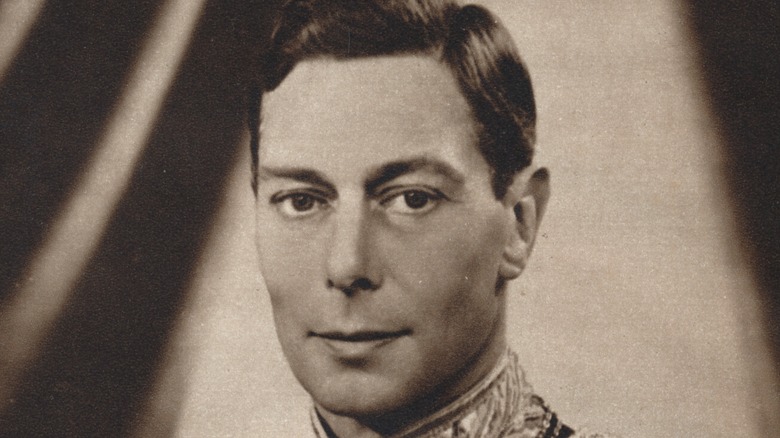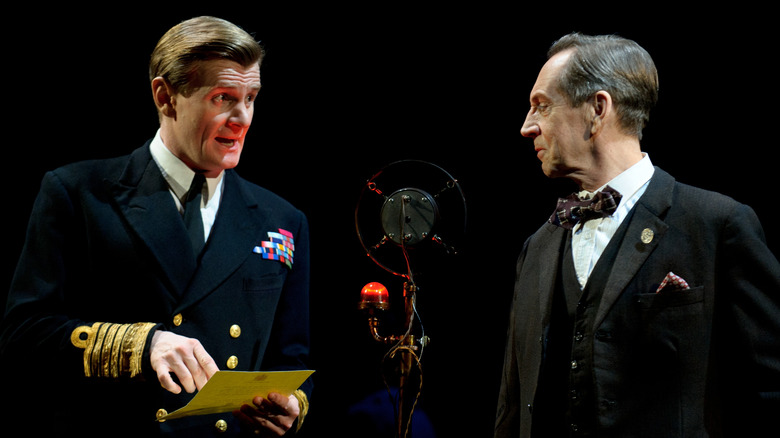How The King's Speech Ignored King George VI's True Story
The dream of a Europe at peace was crushed in 1939, as Poland was invaded by Germany and then the Soviet Union. British Prime Minister Neville Chamberlain was forced to turn back on his hopes of non-aggression and declare war. While few at this time could have predicted the imminent fall of France or the Blitz, both of which would cost thousands of British lives, memory of the last global war was still fresh for many. England lost the better part of a generation of young men in World War I, and the national wounds were still painful.
As the immortalized speeches of Winston Churchill were yet to come, in 1939 it fell upon King George VI to overcome his stutter and address the public. This state of affairs is perhaps best known today through its depiction in the 2010 film "The King's Speech." Although the film overall manages to translate the politics and tension of the time, it still suffers from the artistic liberties that many biographical movies tend to lean toward (via Collider).
King George VI's speech improved far earlier than 1939
The film's narrative is mostly centered on the monarch's speech impediment, which he must learn to control after his brother abdicates the throne. As Daily History writes, his condition was potentially dangerous for the family's reputation, as public morale could falter if a member of the royal family failed to speak clearly. However, the film diverges from reality in how seriously he was affected by his stutter by 1939. While he did employ speech therapist Lionel Logue to help him, "Bertie" (short for Albert; his full name was Albert Frederick Arthur George Saxe-Coburg-Gotha, according to Biography) was capable of giving a coherent speech by adulthood.
The film's account of Logue is accurate in regard to his teaching method, but his key to refining the King's speech was not profanity or inciting anger as depicted, but instead relaxation (via Harley Street). Nor did the bulk of his instruction's success take place in 1939, as in actuality Logue had helped then-Prince Albert largely overcome his stutter by the late 1920s (via Los Angeles Times). These differences serve to paint the king's character in a very different light than what history reflects, underscoring his capacity for self-improvement in favor of cinematic effect.

